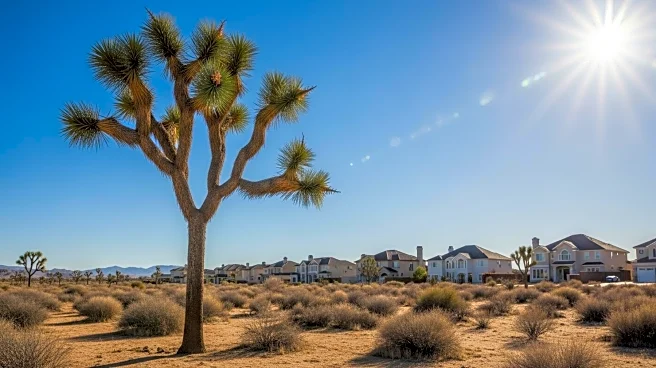What is the story about?
What's Happening?
Property owners in California's high desert regions are facing significant financial and regulatory challenges due to protections for Joshua trees. The Western Joshua Tree Conservation Act requires permits and fees for any land disturbance involving Joshua trees, including removal or even handling fallen branches. This has led to substantial costs for property owners, such as Alec Mackie, who was billed over $32,000 for a project affecting Joshua trees. The law aims to protect the species, which is losing habitat due to climate change and development.
Why It's Important?
The conservation measures for Joshua trees have sparked controversy among property owners and local politicians, who argue that the regulations impose an unfair economic burden. While environmentalists stress the necessity of these protections to preserve the species, critics claim the measures hinder development and economic growth in affected communities. The situation highlights the ongoing debate between environmental conservation and property rights, with implications for housing, infrastructure, and local economies in California's desert regions.
What's Next?
The California Department of Fish and Wildlife is working on compromises to alleviate the burden on homeowners, such as issuing permits to local water districts to cover individual homeowners. This approach could serve as a model for other communities, potentially shifting the responsibility of mitigation fees from individuals to local governments. The ongoing dialogue between state agencies and affected communities may lead to further adjustments in the implementation of the conservation act.















